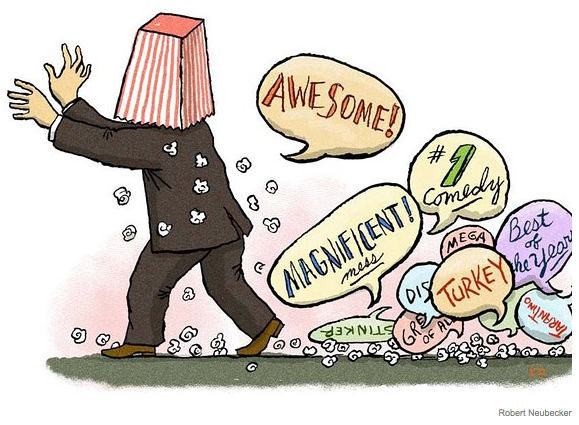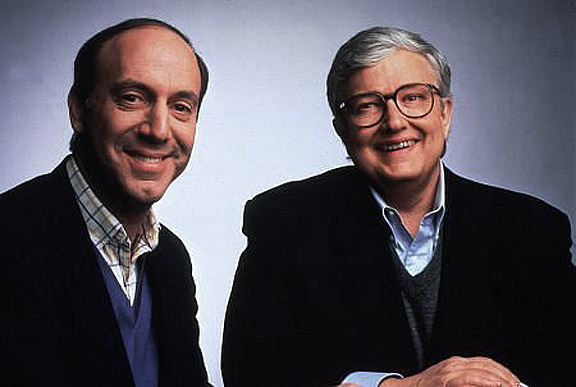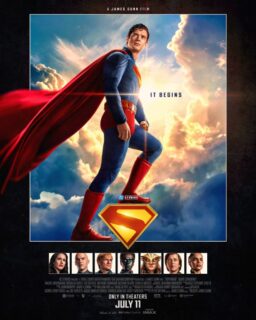 THUMBNAILS: 6/3/2013
THUMBNAILS: 6/3/2013
[Editor’s note: This is the inaugural edition of Thumbnails, a daily selection of links chosen by RogerEbert.com’s editors and contributors. Please send your own suggestions to editor@ebertdigital.com.]
1. “Ten Things Movie Critics Won’t Tell You,” by Charles Passy, for The Wall Street Journal‘s “Market Watch”; Danny Bowes’ rebuttal “10 Ridiculous Things Finance Writers Think About Movie Critics,” for Movies by Bowes.

Passy: “When the Pulitzer Prize–winning movie critic Roger Ebert passed away
this spring, many film fans saw it as a sad milestone — in more ways
than one … Indeed, there are far fewer professional critics today who are household names, say film reviewers and media experts alike … Of course, film criticism now flourishes online, but it’s often being
practiced by amateurs who have little schooling in the art of cinema or
appreciation for film history, according to old-school professionals.”
Bowes: “Movie critics constantly talk about individual critics not having
the cultural reach they once did. Every single eulogy of Roger Ebert
longer than about two paragraphs mentioned that. We all know the
monoculture is dead. Most of us actually like it better that way…Also, [Passy’s] generalities about amateur critics are outdated by about ten
years and misunderstand the actual meaning of the word ‘amateur’ (his
difficulties with the English language present themselves at other
points as well). An ‘amateur,’ going back to the root of the word, is
one who does it for the love.”

2. “I’m Biracial, and that Cheerios Ad is a big f*****g deal, trust me.” At Jezebel, Meagan Hatcher-Mayes gives a personal reaction to a Cheerios ad that casually features a biracial family, and that sparked racist comments on its YouTube page.
“You see, Cheerios has committed the heinous crime of ‘acknowledging that
interracial families exist,’ and also that ‘sometimes interracial
families need to eat breakfast.’ … I am biracial. My mom is black and my dad is white. My family often had
the audacity to eat breakfast even though cereal was not being
specifically marketed to us. When I was growing up, there were no
families on television that resembled mine.”
3. “In Omit the Logic, Richard Pryor crucifies himself again and again.” By Alan Scherstuhl of LA Weekly.

“
Chunks of the swift-moving film—Pryor’s appearances on Ed Sullivan or The Tonight Show—do feel like suggestions for further, fuller research. But Zenovich’s narrative takes on tragic power as it surges through Pryor’s ascent to stardom, his seven marriages, his debilitating addictions, his whorehouse upbringing, and the sometimes cheery, sometimes ferocious ways he smashed his kind of blackness into the American mainstream.”
4. Four reviews of Arrested Development, season four.
James Poniewozik, Time: “The New Arrested Development is Dark, Uneven and Frustrating; Can We Have Another?” Alan Sepinwall, HitFix: “Arrested Development on Netflix is hilarious at times, misconceived at others.” Willa Paskin, Salon: “The imperfect new Arrested Development is still good enough.” Matt Zoller Seitz, Vulture: “A Puzzle Show Perfectly Calibrated for the Internet Age.”

Paskin: “The structure of the new season inadvertently makes plain all that was almost annoy
ing about the original series, but was not because its ingredients were kept in their proper proportions. Just as you want a pinch of salt in your cookie dough, not a pound, you only want ten lines of Ron Howard narration in an episode, not fifty … Loosed upon us in greater quantities than before, it is clear George Sr., Lindsay, guest roles and being clever for cleverness’ sake were only not aggravating in the past because they were used in moderation. And the
n in episode five, Tobias Funke reads the ‘Eat, Pray’ parts of Eat, Pray, Love, decides he wants ‘a new start’ and gets the phrase ‘ANUSTART’ put on his license plate, heralding the first of a dozen jokes revolving around the phrase ‘anus tart.’ I laughed at every single one.”
5. “Drive-Ins Soon Face Hollywood’s Digital Switch.” By Brenna Angel, for NPR.

“The transition away from film started several years ago, but many drive-ins and mom and pop theaters put it off because of the high cost of new projectors. ‘My goodness, the projector at the Bengies is a little over $50,000 — just the projector; forget the installation and the go-withs,’ says D. Edward Vogel of Bengies Drive-In near Baltimore. Vogel is also a board member of the United Drive-In Theater Owners Association. He says it’s unclear how many drive-ins might close because of the change to digital.”
IMAGE OF THE DAY:

A woman named Aida cries as she recovers from injuries inflicted when the Syrian army shelled her house. Taken March 10, 2012, by Rodrigo Abd of The Associated Press. One in a gallery of pictures of the Syrian war that won the AP a 2013 Pulitzer prize for photography. Images this memorable will become more rare as newspapers and wire services cut costs by firing professional shooters and asking reporters to snap their own pictures with cell phones, as the Chicago Sun-Times did last week. For details on the Sun-Times layoffs, read this story by Robert Channick of the Chicago Tribune.
VIDEO OF THE DAY: The Cheerios ad (see #2, above).











